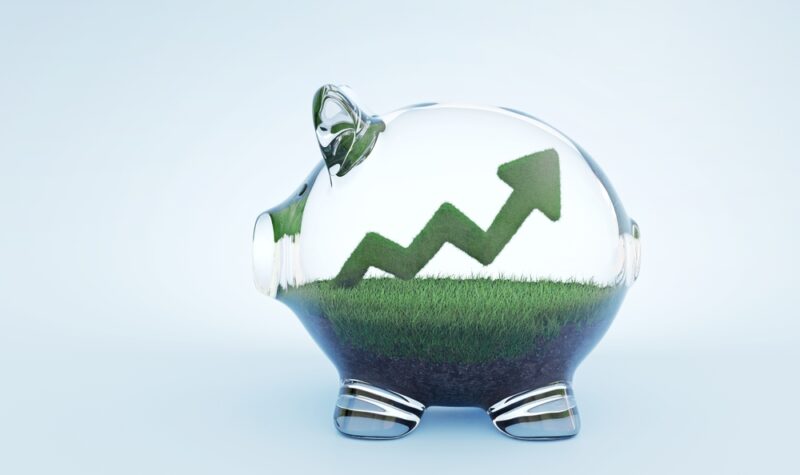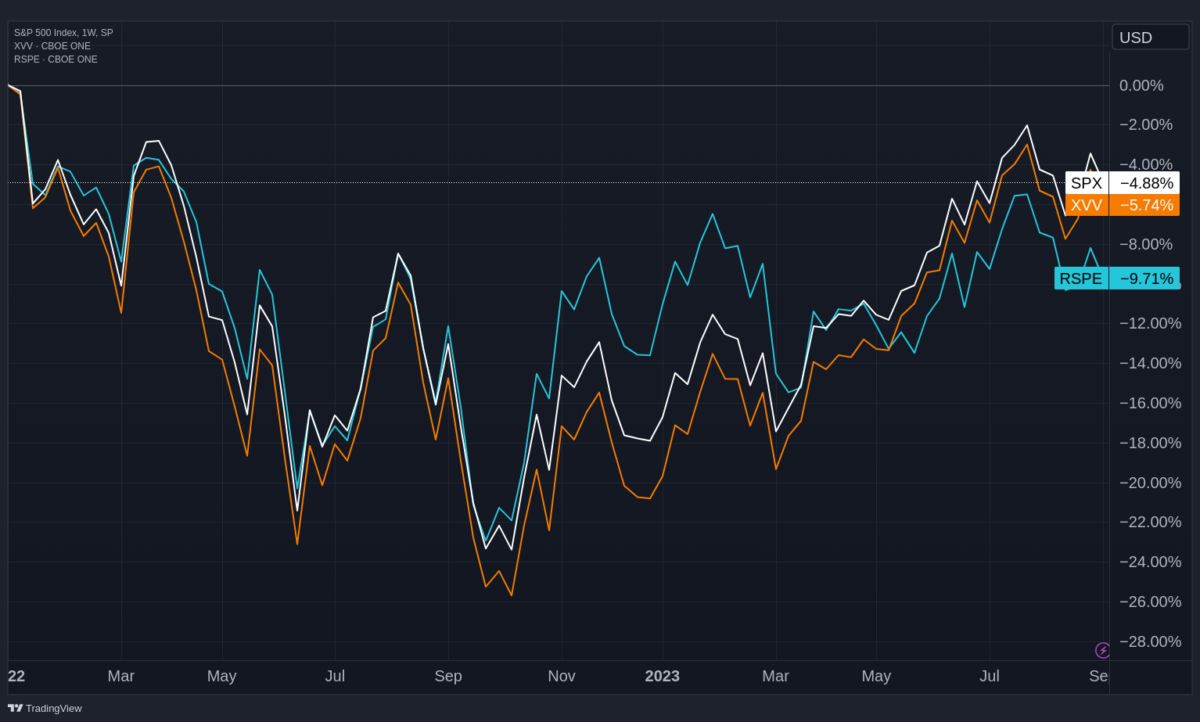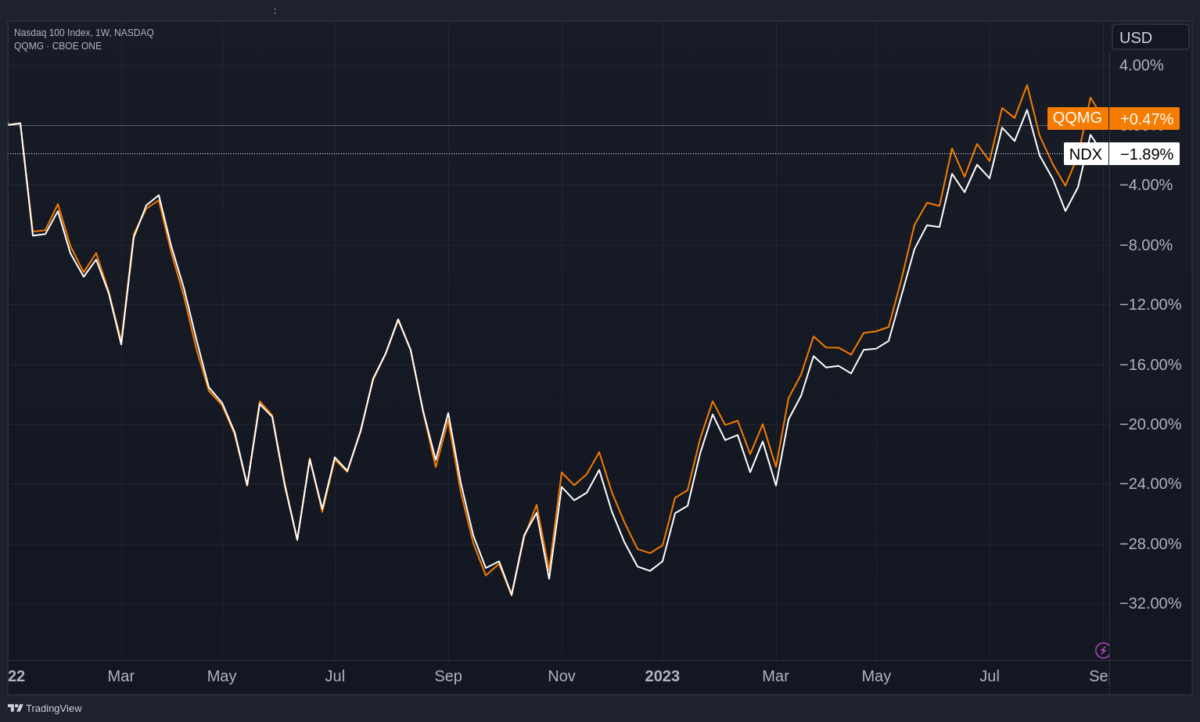Keep Your ESG In The Broad Market

ESG investment is increasing in popularity, particularly among younger investors. According to several polls and studies, these investors are even willing to lose some yield if they believe they’re running a more environmental, social and governance-friendly portfolio. The discussion on the pros and cons of ESG investing largely surpasses the fields of economics or finance and the answer to the exact merits of this kind of investment will vary widely depending on the specific considerations. One problem that always arrives when dealing with ESG is to effectively measure subjective traits that are not traded in markets, therefore not being priced. Another is the subjective judgement involved in excluding controversial businesses and in keeping some other more consensual that are likely to produce harmful goods to some extent. Finally, another problem is related to portfolio diversification, as most ESG portfolios are heavily tilted not only to ESG-friendly companies but also to very specific themes, including sustainable energy, water conservation or solar power. This approach leads the new generation of investors towards keeping unbalanced portfolios. A potential solution to this problem is to invest in the (rare) broad-based ESG ETFs. These are tilted towards the ESG investment theme but still enjoy one of the biggest benefits of holding a portfolio, which is keeping unsystematic risk away.
In ESG investment, investors use a set of standards for a company’s behaviour to screen potential investments. The acronym ESG can be split into three parts, where: Environmental (E) stands for conservation of the natural world, Social (S) is related to the consideration of people and relationships, and Governance (G) considers standards for running a company. The screening process involves environmental criteria like carbon emissions, waste management and pollution levels; social measures like customer satisfaction, data security and employee diversity; and governance metrics like executive pay and diversity of board members. ESG investing is a form of sustainable investing.
One challenge that comes with ESG investing is that of understanding to which extent ESG is a new (unpriced) factor. Recent academic research says it isn’t. There are several papers dedicated to identifying differences in performance between ESG and non-ESG funds. The results are rather mixed. After controlling for style factor exposures like the market, size, value or momentum, the majority of funds doesn’t produce a significant alpha either positive or negative; that is, they do not add or subtract on the expected performance for the broad market. Basically, incorporating ESG information into an equity-market-neutral portfolio doesn’t generate any additional performance because the benefits from tilting towards a better-rated ESG portfolio are already fully captured by other factors, like size or momentum. All this means that most of the extra returns that sometimes come from ESG portfolios are eventually due to their heavy exposure to some factors like momentum and not due to their specific ESG characteristics. For this reason, I believe that investors willing to follow their social and environmental awareness can still do it, but are eventually better served with a broad-based ESG fund than with the large selection of heavily-themed funds available.
Without being exhaustive I suggest three ETFs, one from iShares (BlackRock) and two from Invesco:
iShares ESG Screened S&P 500 ETF (CBOE:XVV)
This ETF eliminates the S&P 500 exposure to certain controversial business areas while keeping a broad market exposure. The index screens involvement in controversial weapons, small arms, tobacco, oil sands and shale energy, thermal coal and fossil fuel reserves. Typically, these screens eliminate stocks based on specific revenue thresholds or percentage of revenue. Therefore, most of the time, these aren’t zero-tolerance filters. This is the cheapest of the three ETFs with annual fees at 0.08%.
Invesco ESG S&P 500 Equal Weight ETF (NYSEARCA:RSPE)
Invesco offers an interesting alternative to the iShares ETF depicted above because it mixes the ESG feature with equal weighting. In my blog Why Invest In Equal-Weighted Indexes? I go through the advantages of equal weighting over capitalisation weighting. In summary, equal-weighting almost always beats its alternative and outperforms most alternative strategies. The source of its outperformance is its contrarian nature created by rebalancing holdings, ditching those rising and adding those declining, which exploits reversals in stock returns. RSPE evaluates and selects companies based on their ESG rankings, which are determined through questionnaires and publicly accessible information. Again, this ETF is tilted towards the ESG values and doesn’t fit in portfolios of investors seeking complete exclusions. Annual fees come at 0.20%, which are higher than for XVV but are still low for a fund featuring scheduled rebalances.

Invesco Nasdaq 100 ETF (NASDAQ:QQMG)
The last ETF in my list for today is tailored for those looking for a tech exposure, therefore indexing on the Nasdaq instead of the S&P 500. This fund offers a unique alternative to Nasdaq 100 funds, specifically designed to align with ESG values. An ESG adjustment on market capitalisation determines the market weight assigned to each holding. Its fees are 0.20%.

Final Words
Investors looking for ESG values to match with their personal beliefs can find on broad-based ETFS like XVV, RSPE and QQMG an alternative way of building a portfolio. More than anything, ESG marks the beliefs of a generation concerned with the future, willing to fight for higher standards in terms of respect for the environment and for people. However, if you’re willing to follow these values in investment, you shouldn’t expect any outperformance because ESG is already priced in other factors, as far as academic research can tell.
Comments (0)